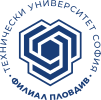Funded by: National Science Fund
Duration: 2018 – 2020
Summary:
The project proposal considers the implementation of algorithms for learning and adaptation applied to intelligent behaviors of autonomous robots. The main goal is by using technologies related to artificial intelligence, cyber-physical systems, sensors, digital models and simulations, big data – to achieve higher functionalities of robots and their effective operation in a shared environment.
This project will help to build up both research experience and experimental results, and to develop systematized approaches and an accurate vision of the opportunities for robots to penetrate into human society and share a common workspace. The research is focused on both, concepts of using collaborative robots in the industry and service robots that function in the human environment.
The implementation of this goal will address several important issues concerning the wider enrollment of robots in a human-shared environment:
(i) Using natural interfaces for human – robot communication. This type of communication (by recognizing speech commands, gestures, emotions, guiding movements, touch) is crucial for an extended ability to use robots in a shared with humans environment where the robot will have to interact with not only trained and equipped operators, but also with people who are not specially trained and do not have a dedicated interface.
(ii) Study of learning and adaptation algorithms and their capabilities for controlling robots in a shared environment. The project proposal addresses the following two problem-oriented directions:
– Learning and adaptation algorithms aimed at increasing flexibility and expanding the class of tasks performed by the robot.
– Training and adaptation algorithms aimed at improving the basic technical characteristics of the robot such as: accuracy in positioning and trajectory tracking, speed of movement, etc.
(iii) Investigation of control algorithms for multiagent robot system.
Studying robots in a shared workspace also includes the case where the work environment is shared by several robots. Algorithms will be developed and studied to allow interaction between robots sharing a common workspace.
Aim: Implementation of algorithms for learning and adaptation applied to intelligent behaviors of autonomous robots. The main goal is by using technologies related to artificial intelligence, cyber-physical systems, sensors, digital models and simulations, big data – to achieve higher functionalities of robots and their effective operation in a shared environment.
Team members:
- Assoc. prof. PhD Nikola Georgiev Shakev (project coordinator)
- Prof. PhD Andon Venelinov Topalov
- Prof. PhD Mihail Georgiev Petrov
- Assist. prof. PhD Sevil Aptula Ahmed
- Assoc. prof. PhD Dilyana Valkova Budakova
- Assoc. prof. PhD Ivan Josifov Kostov
- Assist. prof. eng. Vasil Lubenov Popov (PhD student)
- MSc. eng. Nikolay Dimitrov Dimitrovпроф (PhD student)
Invited team members:
- MSc. eng. Kostadin Borisov Shiev (Bulgaria)
- Prof. PhD Zdenek Pliva (TU-Liberec, Czech Republic)
- Assoc. prof. PhD Josef Cernohorsky (TU-Liberec, Czech Republic)
- Lecturer PhD Robert Kazala (Kielce University of Technology, Poland)
